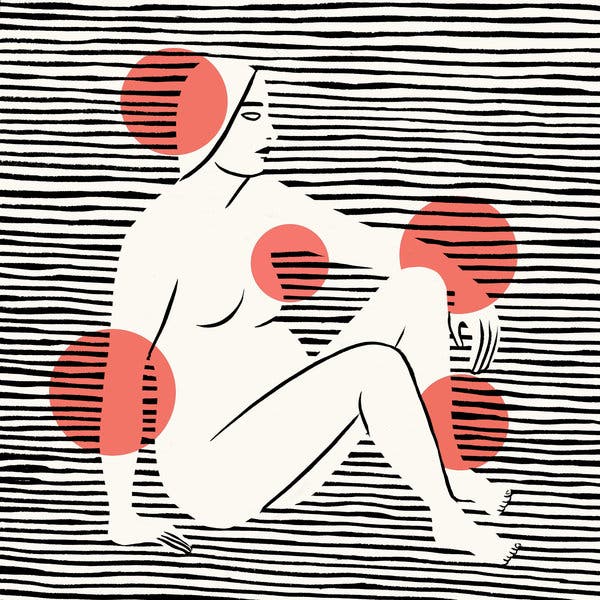
Cramps are one of the biggest causes for concern of women during pregnancy
For some, they become unbearable and even debilitating. If you have experienced these symptoms during your pregnancy, know that you are not alone, and there are some options available to reduce or eliminate them.
Most women first notice cramping around the sixth month of pregnancy (1). At first they may come and go without much intensity and often occur only a few times a month. However, after a few months, people usually experience cramps and begin to experience cramps in almost every cycle.
It is difficult for women to accurately describe what their discomfort is, because it is associated with severe pain. Women who experience severe cramps such as Bell's palsy may experience contractions when the uterus contracts and a cramping sensation occurs. If you find it difficult to get pregnant, pain may be the cause. However, for most women, pain is due to muscle spasms and is felt near the chest, around the chest, and in the abdomen.
Many women report that if they drink milk just before a contraction, their pain will be relieved. This is because milk contains natural hormones that reduce the likelihood of muscle cramps. However, if you drink too much milk, you may experience nausea, vomiting, and other side effects. To reduce discomfort, try drinking a small glass of milk to relax your abdominal muscles and nerves.
Some women experience cramping as a result of hormonal changes that occur during pregnancy. Hormones cause changes in blood flow and pressure, which cause cramping. This can be due to an increase in estrogen in the bloodstream, which increases pressure in the uterus and causes contractions. Some women report that if they change the brand of contraception, it can also cause cramps to decrease.

Exercise is a great way to reduce cramps during pregnancy, but make sure you do moderate physical activity. Since too much physical activity can cause contractions, you should consider doing light aerobic exercise. If you're trying to get pregnant, it's a good idea to include exercise in your daily routine to ease the discomfort.
Some women experience cramping during labor, because during this time they are pushing through with an expanding baby. Others experience cramping in the last two months of their pregnancy as a result of the increased fluid levels in the body. This can also be caused by having an epidural or C-section.
If you think you might be experiencing cramping, you can get pain relief from natural supplements, such as vitamin E, which can help reduce the pain associated with this. Another popular way to reduce cramping during pregnancy is to take acetaminophen or ibuprofen. If you have already started taking any medications for this, it is important to notify your doctor, as there are many different ones available that may interact with these medications. If all else fails, there are many other natural remedies you can try.
You can get cramps relief from using heat, such as steaming in a sauna, or by soaking in hot water. Heat is often recommended for reducing cramps. You can also try using heat packs on your body, or using ice wrapped in a towel or cloth and then placing it over the cramps for a few minutes. You may want to try to do either of these things several times throughout the day to get a feel for whether you will experience relief. This is especially helpful when you are experiencing intense abdominal pain.
Other ways to relieve cramps during pregnancy is to use pelvic floor exercises, or Kegel exercises, which are very helpful. To do these pelvic floor exercises, you will need a lubricant such as KY JellyMed for better results. There are plenty of books and online videos that will help you learn more about this technique.
If you are having cramps during pregnancy, it is always best to consult a doctor before trying to treat it. Not only is it extremely uncomfortable but it can also pose risks to your unborn child. It is always recommended that you wait until you are eight weeks pregnant, before attempting to treat any condition without a doctor's supervision.
